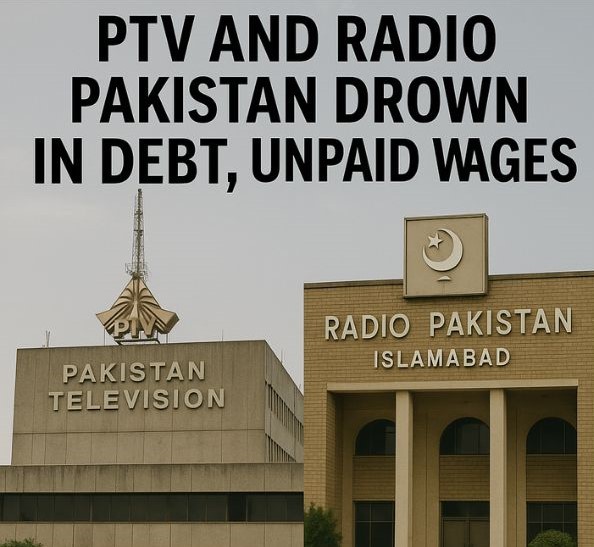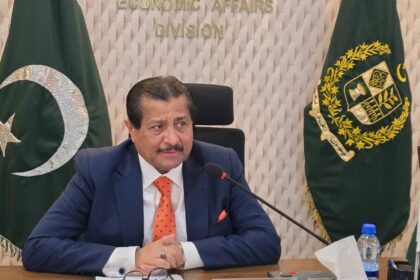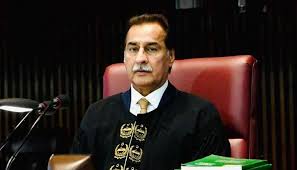Pakistan Television (PTV) and Radio Pakistan are facing an alarming financial crisis, with senators voicing severe concerns over rampant mismanagement, burgeoning debt, unpaid staff wages, bloated payrolls, property scandals, and the neglect of valuable state-owned assets. During a recent Senate Standing Committee hearing, lawmakers expressed harsh criticism of the management at both national broadcasters, demanding accountability, comprehensive reform, and exploring options such as privatization or public listing to prevent complete institutional collapse.
The crisis at PTV accelerated sharply after the federal government discontinued the “discourse fee,” which instantly wiped approximately Rs 11 billion annually from the broadcaster’s revenues. Senators expressed disbelief at PTV management’s lack of a credible strategy to cover the resulting deficit, as the broadcaster now relies solely on around Rs 5 billion from advertising. One senator harshly criticized the decision-making, noting sarcastically, “Whoever made this decision clearly never thought of the consequences. How does PTV survive without income? Through magic?”
Committee members pressed PTV executives on the organization’s spiralling costs even as its financial health deteriorated. Despite dwindling performance, salary expenses jumped alarmingly from Rs 475 million in 2022, projected to rise to Rs 820 million by 2025. Even more troubling was revelation of staffing anomalies: PTV currently employs more pensioners (3,765) than regular employees (3,560), with an extra burden of 1,173 contractual workers further burdening finances. Members of Parliament strongly questioned the wisdom behind continued hiring while already straining under crippling pension liabilities. They forcefully argued these stark realities bolster a compelling case for privatization.
Though some corrective actions were recently attempted—including reducing anchor salaries exceeding Rs 500,000 per month by 20%, dismissing 84 ghost workers who never showed biometric attendance, and launching a review of another 280 staff members possessing fake academic credentials—lawmakers remained unconvinced of genuine reform or earnest intent among PTV leadership to fix profound structural flaws.
Senators were also highly critical of PTV’s modest attempts at digital transformation. The broadcaster earned only Rs 1.9 million from platforms like YouTube—a sum described by committee members as negligible compared to billions being lost annually. In response, parliamentarians strongly recommended either privatizing the station or listing it publicly on the stock exchange to attract outside investment, strengthen financial oversight, and enhance transparency.
Radio Pakistan faced similar scrutiny amid troubling reports on its state-owned properties. Senators raised serious concerns about illegal occupation and misuse of historically valuable properties. Of particular concern was the historical Karachi building, previously occupied by the Rangers but now vacant and deteriorating. In Malir, unauthorized individuals now occupy servant quarters provided by Radio Pakistan, enjoying rent-free living and illegally drawing electricity from the broadcaster’s premises. Senators demanded a comprehensive survey and urgent intervention to reclaim and secure all significant heritage properties nationwide.
Employees at both institutions have become collateral damage of ongoing internal chaos. Committee members expressed outrage over reports that security guards and support staff have gone four months without pay, while senior anchors and bureaucratic executives continue receiving hefty salaries with minimal disruption. This stark disparity heightened senators’ frustration, who voiced anger and disbelief at management’s requests for federal financial assistance while continuing irresponsible internal practices that demonstrate a lack of accountability or willingness for meaningful change.
In response, the Senate Standing Committee ordered detailed reports from both PTV and Radio Pakistan, including comprehensive five-year employment data, analysis of the deficit, and a credible recovery and restructuring strategy. Officials were also mandated to clarify why treasured historical studios remain shuttered, broadcasting boosters are underutilized, and valuable drama archives are allegedly being unofficially sold online.
Parliamentary members concluded the meeting with a stern warning: unless PTV and Radio Pakistan’s leadership present convincing evidence of substantial and genuine internal reforms, the government must cease issuing funds to support clearly unsustainable and failing management practices. “No more blank cheques,” warned one committee member forcefully. “It’s time to face the music.”











